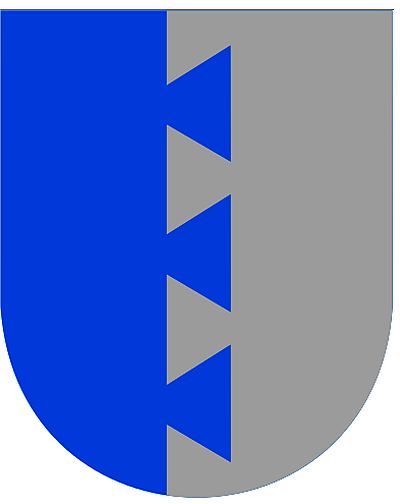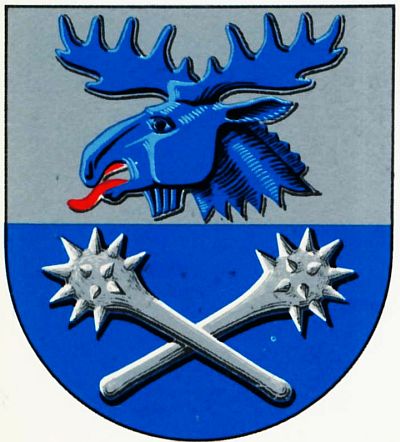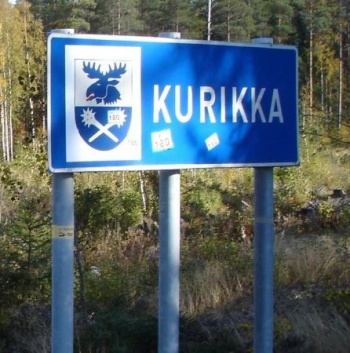Kurikka: Difference between revisions
Jump to navigation
Jump to search
Knorrepoes (talk | contribs) No edit summary |
Knorrepoes (talk | contribs) |
||
| Line 24: | Line 24: | ||
The upper half shows a moose head, derived from a local legend in which moose hunters played a major role. The lower half shows two warrior clubs, a canting symbol (kurikka=club). | The upper half shows a moose head, derived from a local legend in which moose hunters played a major role. The lower half shows two warrior clubs, a canting symbol (kurikka=club). | ||
{|align="center" | |||
|align="center"|[[File:Kurikka2.jpg|center|350 px]] <br/>The old arms on a road sign | |||
|} | |||
{{media}} | {{media}} | ||
Revision as of 07:11, 17 December 2015
KURIKKA
Region : Etelä-Pohjanmaa
Former province : 1997-2009 Länsi-Suomi (until 1997 Vaasa)
Additions : 2009 Jurva
Official blazon
- (1951) Hopea-sinikatkoisen kilven yläkentässä sininen hirvenpää, jonka kieli ja hampaat punaiset; alakentässä kaksi hopeista piikkinuijaa ristikkäin.
- (2009) Siniseen ja hopeaan lohenpyrstökoroilla halkaistu kilpi.
Origin/meaning
The arms were adopted on January 1, 2009.
The arms simply refer to the merger of the two former municipality and their tight connections.
The previous arms were granted on September 14, 1951.
The upper half shows a moose head, derived from a local legend in which moose hunters played a major role. The lower half shows two warrior clubs, a canting symbol (kurikka=club).
| The old arms on a road sign |
Contact and Support
Partners:
Your logo here ?
Contact us
© since 1995, Heraldry of the World, Ralf Hartemink 
Index of the site
Literature : Pirinen, K. Local coats of arms in Finland (Suomen kunnallisvaakunat), Vantaa, 1982, 216 p.












